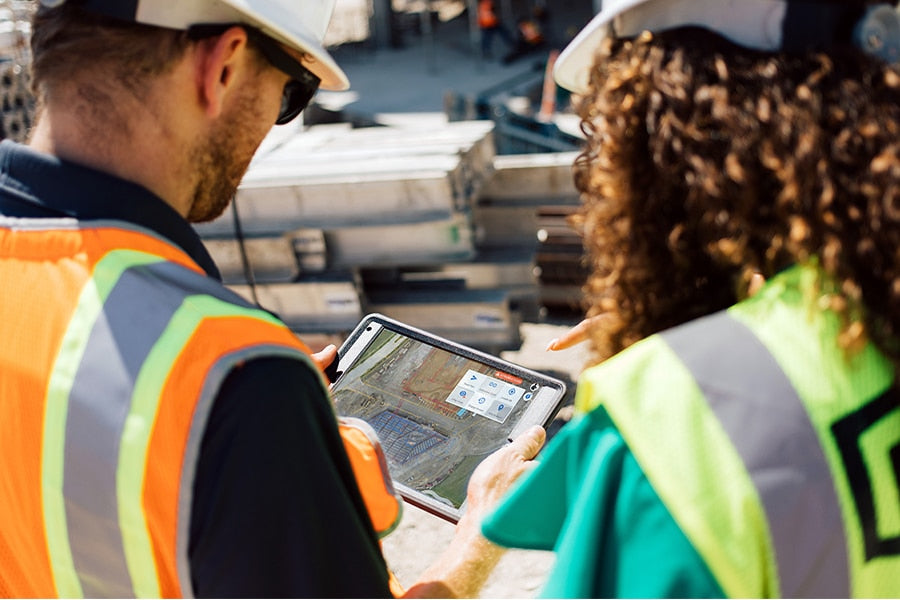Your Cart is Empty
Customer Testimonials
-
"Great customer service. The folks at Novedge were super helpful in navigating a somewhat complicated order including software upgrades and serial numbers in various stages of inactivity. They were friendly and helpful throughout the process.."
Ruben Ruckmark
"Quick & very helpful. We have been using Novedge for years and are very happy with their quick service when we need to make a purchase and excellent support resolving any issues."
Will Woodson
"Scott is the best. He reminds me about subscriptions dates, guides me in the correct direction for updates. He always responds promptly to me. He is literally the reason I continue to work with Novedge and will do so in the future."
Edward Mchugh
"Calvin Lok is “the man”. After my purchase of Sketchup 2021, he called me and provided step-by-step instructions to ease me through difficulties I was having with the setup of my new software."
Mike Borzage
Exploring the Use of GPS Tracking in Construction Firms
October 26, 2023 2 min read


Exploring the Use of GPS Tracking in Construction Firms
GPS technology, or Global Positioning System technology, is changing the way construction firms operate. From securing on-site equipment to aiding in land mapping for projects, GPS offers a wealth of information previously unthinkable. In this article, we'll delve into the multifaceted applications of GPS tracking in construction firms.The Multiple Uses of GPS Tracking in Construction
GPS tracking's benefits for the construction sector are immense. With increased use of mobile devices and cloud technology on construction sites, staff can always view where their equipment is. By placing a small GPS tracking device on a valuable piece of equipment, a contractor can monitor that machinery's location 24/7. Aside from preventing potential thefts, GPS-enabled equipment can help contractors keep track of equipment locations on a large construction site. This real-time tracking can save time and effort when that equipment is needed elsewhere at short notice. It also prevents unauthorized use of the asset. Moreover, GPS tracking for construction equipment can aid in studying fuel consumption, tracking an asset's usage within its design parameters, and improving onsite productivity by facilitating quicker mapping and layout activities.Choosing a Good GPS Device
When seeking a system for your equipment, consider the following criteria:- Easy installation
- User-friendly interface
- Accessibility on any device
- Easily searchable information in an easy-to-read format with options to export reports
- Comprehensive data sets on each component
- Fuel and maintenance insights
- Automated alerts for unusual activity
Boosting Supply Chain Efficiency
The construction industry, while large, has been historically slow in adopting new technologies. However, research has highlighted the numerous benefits of using GPS in delivering complex projects such as bridges, roads, highways, and high-rise buildings, urging the industry to show more enthusiasm for the technology. Studies have demonstrated that integrating Radio Frequency Identification applications (tags that read and transmit signals wirelessly) with GPS tracking can boost efficiencies in the supply chain. This combined technology can generate, record, and exchange process-related knowledge among supply chain stakeholders, enabling all parties to identify and mitigate potential disruptions in the construction process.Conclusion
GPS technology is gaining traction in the construction sector, proving instrumental in boosting productivity, safeguarding assets, and enhancing supply chain efficiency. The construction industry stands to benefit significantly from embracing this technology, and firms that do so are likely to gain a competitive edge. For more information about the newest and most advanced design software technologies that can help your firm harness the power of GPS tracking, contact our sales team at NOVEDGE.Also in Design News

Rhino 3D Tip: Rhino to Real‑Time Engines: Clean Models, Optimized Meshes, Reliable Exports
December 07, 2025 2 min read
Read More
Cinema 4D Tip: Constraint-Based Animation with PSR, Parent, and Aim
December 07, 2025 2 min read
Read More
V-Ray Tip: Proximity Dirt and Wear Masks with VRayDistanceTex
December 07, 2025 2 min read
Read MoreSubscribe
Sign up to get the latest on sales, new releases and more …


